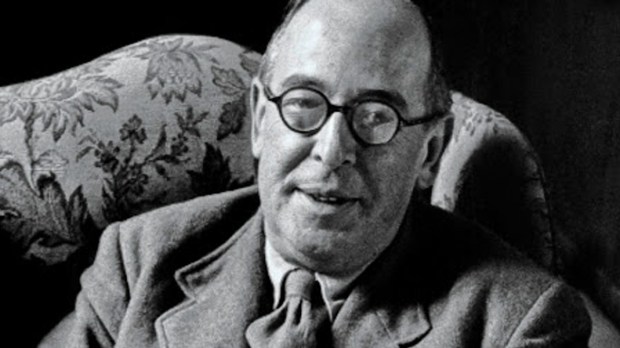C.S. Lewis had a lot to say about Christianity. Now, almost six decades since his death, he is continuing to speak out.
A trove of letters that were discovered shows Lewis continuing to grapple with questions of faith in the final years of his life, particularly after the death of his wife in 1960. Lewis died on November 22, 1963, the same day as the assassination of President John F. Kennedy.
Lewis had married Joy Davidman in 1956. She died of bone cancer four years later. Her death tested the faith of the author of the Chronicles of Narnia, but in 1961 he published A Grief Observed, about mourning and how faith can survive it.
Around the same time, Lewis began corresponding with American scientist Thomas Van Osdall, and he who was inconsolable over the death of his wife suddenly found himself consoling another: Van Osdall’s only child, Thomas, had been killed in a car crash at the age of 18, in 1962.
Some of these letters give a sense of how Lewis spent his final days and show that the questions that vexed him continued to dominate his thoughts to the end, the Guardian reported.
“You tell a most moving story,” Lewis wrote to Van Osdall, professor of chemistry at Ashland University, Ohio. “I too have lost what I most loved. Indeed unless we die young ourselves, we mostly do. We must die before them or see them die before us. And when we wish — and how agonizingly we do, o how perpetually! — it is entirely for ourselves, for our sakes not theirs.”
Van Osdall died in 2001 and the letters, dated between May 27 and October 26, 1963, were found several years later and given to his university, which passed them on to Michael Peterson, professor of philosophy at Asbury Theological Seminary in Kentucky, the British newspaper said:
He will publish them in his forthcoming book, CS Lewis and the Christian Worldview, to be released by Oxford University Press next month. Peterson said: “There are three volumes of Lewis’s letters out there — and now five others show up. Just to see the handwriting, you get a little sense of … Lewis’s personality. He was a very intense but warm person. That comes across.” … His faith was tested after Davidman’s death, but Peterson argues that his beliefs held strong. His theological questions about her suffering and death drove him to understand his rational faith “a bit differently intellectually,” he said. “One of these letters shows his faith wasn’t destroyed. He was speaking out of the framework of faith.”
In his letters, Van Osdall asked Lewis, who also wrote about science, whether the British author believed that science and theology are “actually traveling the same road and that someday both will meet.”
Quoting from Lewis’s 1947 book Miracles – “Men became scientific because they expected Law in nature” – the American asked: “Is your concern, at this point, with the problems of uncertainty, wave and particle dilemma, probability and free will?” Lewis, with typical modesty, replied: “I am flattered that you should wish to use my rather amateurish remarks … When I spoke about the hypothesis of a lawless ‘subnature’ I certainly had in mind ‘uncertainty wave – and particle dilemma,’ not free will … “Of course you’ll ‘run into trouble,’ but so you will, surely, in any work worth writing.”

